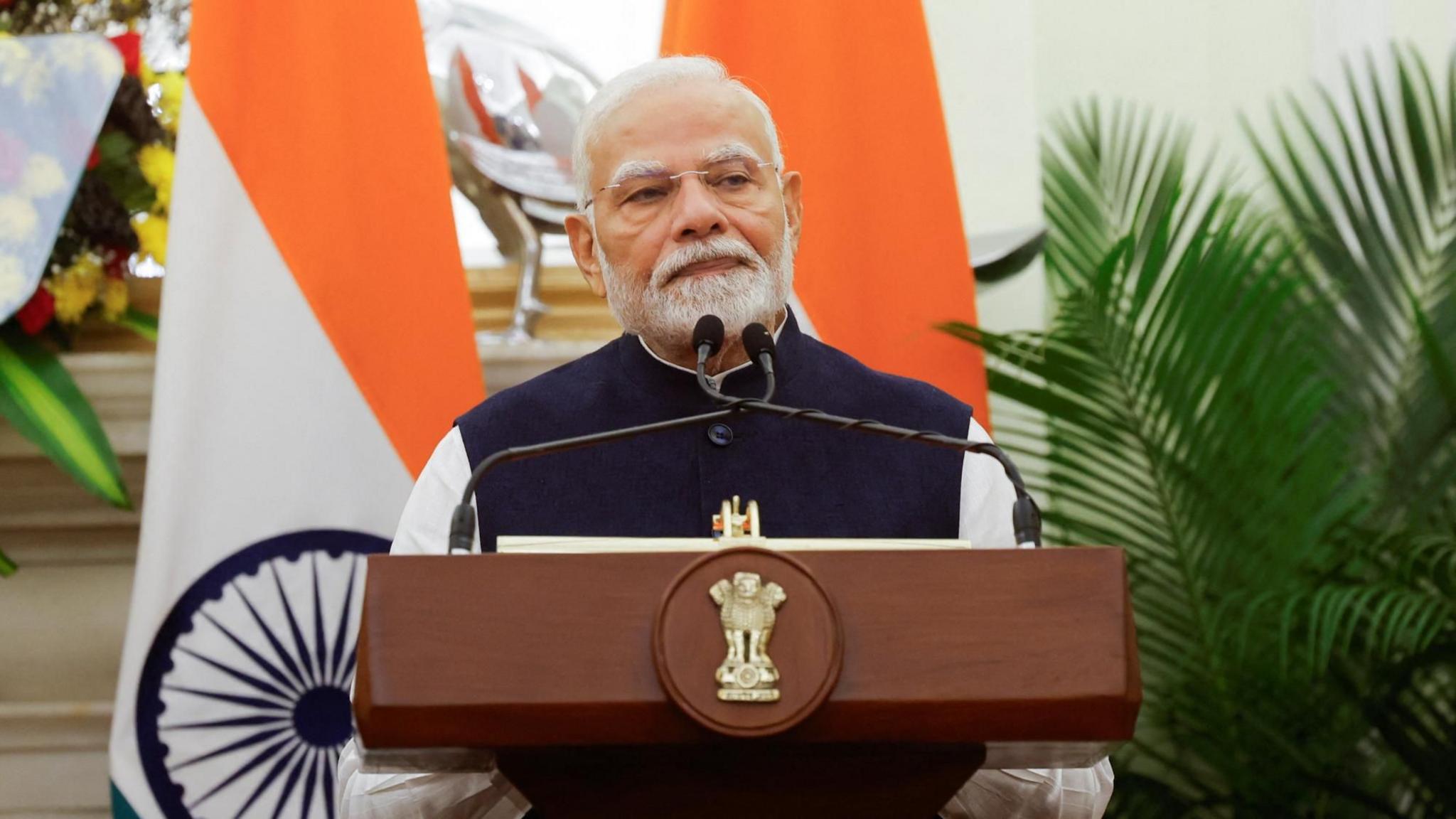Indian PM Modi warns against 'digital arrest' scam

- Published
Indian Prime Minister Narendra Modi has warned Indians against an emerging online fraud known as "digital arrest".
Some people have reportedly been scammed out of millions of rupees by fraudsters, who contact their victims via video call posing as police or tax officials levelling false charges at them.
The scammers order their victims to stay in one place - usually their home - under the false pretence of a "digital arrest," telling them not to contact anyone.
Modi said digital arrest does not exist in Indian law and no enforcement agency would ever ask citizens for personal details by phone or video call.
"The fraudsters impersonate police, Central Bureau of Investigation, narcotics and at times central bank officials,” Modi said.
The scammers appear on screen with a studio setup resembling a police station, tax office or a federal investigation agency. They also wear official-looking uniforms to appear legitimate and produce fake ID cards.
Scammers typically claim that the victim has sent a parcel containing illegal goods such as drugs, or claim their phone has been linked to illegal activity. Deepfake videos and false arrest warrants have also been reported as part of the scam.
More and more cases of so-called digital arrests are being reported.
In August, Bengaluru police arrested several men , externalafter a victim was allegedly scammed out of more than 20 million rupees ($237,000; £183,000), according to Indian media reports.
Fraudsters said a parcel addressed to the victim contained the drug MDMA and had been seized by police. Over a WhatsApp call, they threatened him with legal action if he did not pay to settle his alleged legal issues.
Actor Maala Parvathi, who appears mainly in Malayalam-language movies, also reported, external being targeted by the scam this month.
Indian media reported that she said the scammers showed her fake ID cards, pretending to be officers from Mumbai Police, accused her of smuggling drugs to Taiwan and placed her under virtual arrest for questioning.
She realised it was a fraud before any exchange of money took place, she reportedly said.
In his warning to the nation, Modi told victims to follow three steps to stay safe.
"First, stay calm and do not panic. Record or take a screen recording if possible," the prime minister said.
"Second, remember that no government agency will threaten you online.
"Third, take action by calling the national cyber helpline and also inform police about the crime."